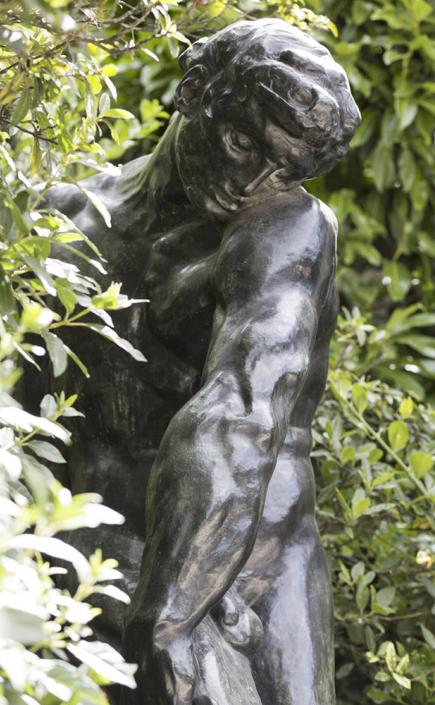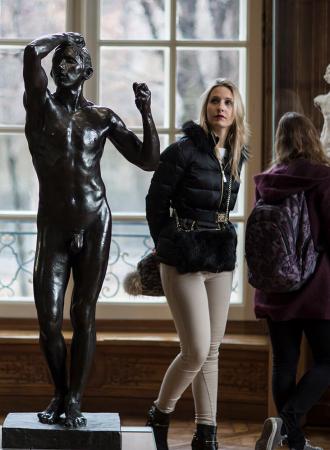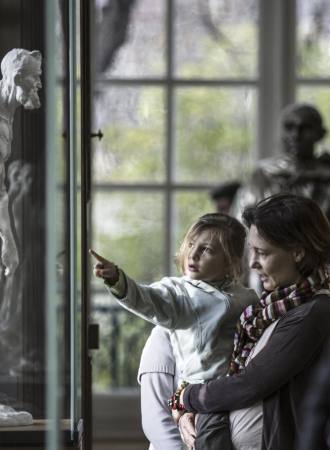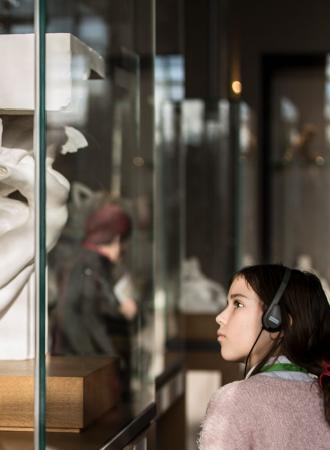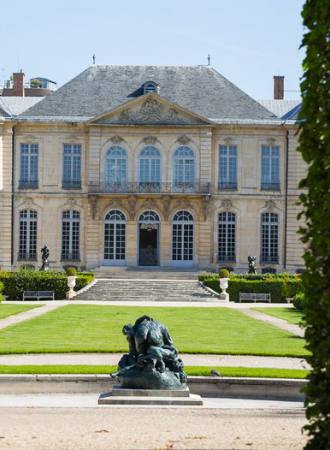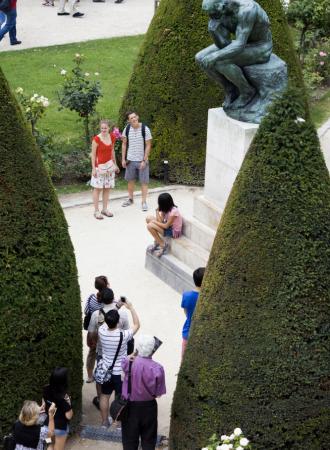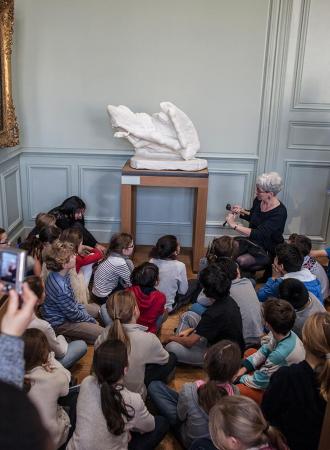Search the site
Ugolino and his children
Auguste Rodin (1840 -1917)
Rodin must have been very impressed by Carpeaux’s Ugolino (1861, Musée d’Orsay), the famous sculpture whose dramatic subject was drawn from Dante’s Divine Comedy. Twenty years later, after receiving the commission for The Gates of Hell, he made several sketches of this Dantesque theme dear to the Romantics: imprisoned, driven crazy by hunger, Ugolino, Count of Gheradesca, devoured his dead children, a crime for which he was eternally damned.
In his group on The Gates , Rodin depicted the dramatic scene just before it reached its climax : Ugolino is crawling over the bodies of his dying children, but has not yet given in to his bestial instincts. Naked, grimacing, on all fours, this desperate man has lost all sense of human dignity. His pose was both humiliating and original in the art of Rodin’s day. He placed this group in a prominent position on The Gates , and then decided to have a freestanding version of it cast.
The artwork in the museum
Sculpture garden
We cannot guarantee the presence of all our artworks; some may be out on loan.
Discover the themes related to the work
Completion date :
1881-1882
Dimensions :
H. : 41.5 cm ; W. : 39.1 cm ; D. : 60.9 cm
Materials :
Plaster
Inventory number :
S.01427
Credits :
© Agence photographique du musée Rodin - Jérome Manoukian
Additional information
Iconography
- Ugolino and his children(zip, 843.7 ko)
